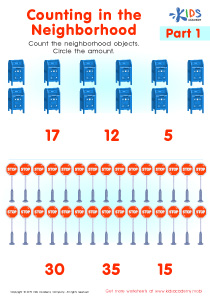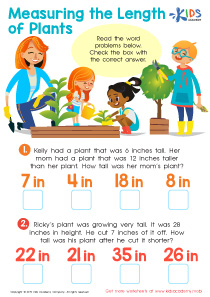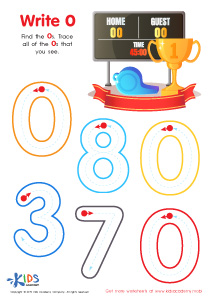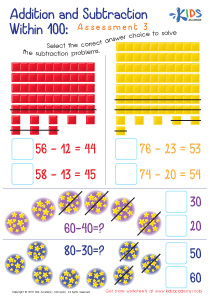Sorting skills Easy Numbers 0–10 Worksheets for Ages 4-7
3 filtered results
-
From - To
Introduce your little learners to the foundational concept of sorting with our "Sorting Skills Easy Numbers 0–10 Worksheets," designed specifically for ages 4-7. These engaging worksheets help children recognize and categorize numbers while enhancing their critical thinking and organizational skills. With vibrant illustrations and fun activities, kids will sort objects and numbers, reinforcing their understanding of quantity and value. Perfect for home or classroom use, these resources provide a playful approach to early math education. Watch your child develop essential sorting skills as they delight in learning! Discover the exciting world of numbers and shapes today!
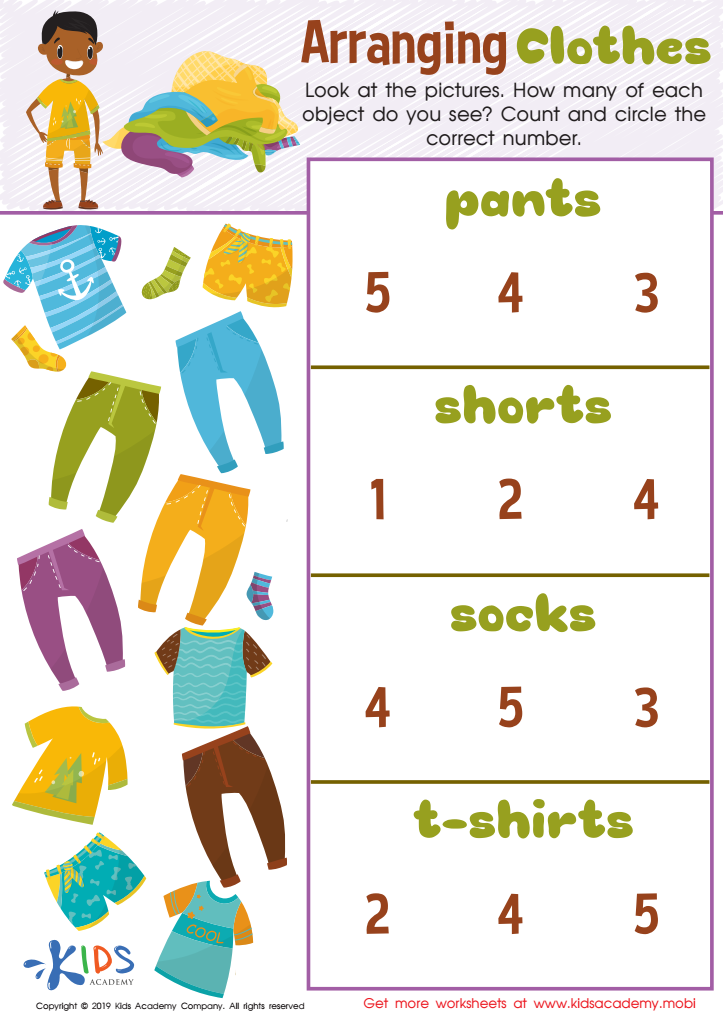

Arranging Clothes Worksheet
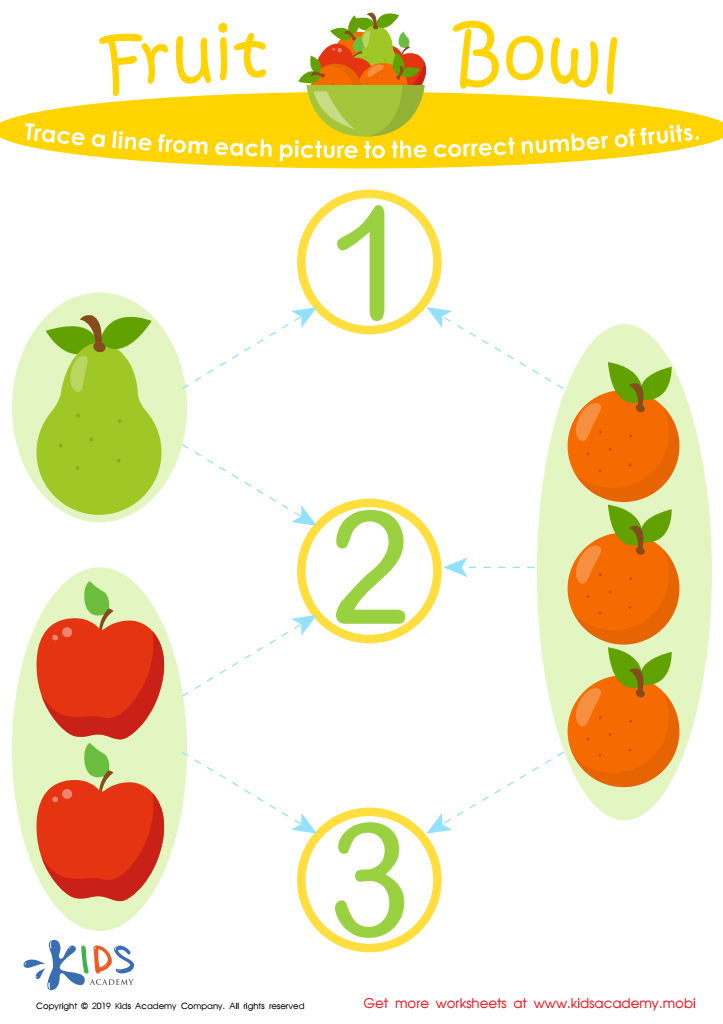

Fruit Bowl Worksheet
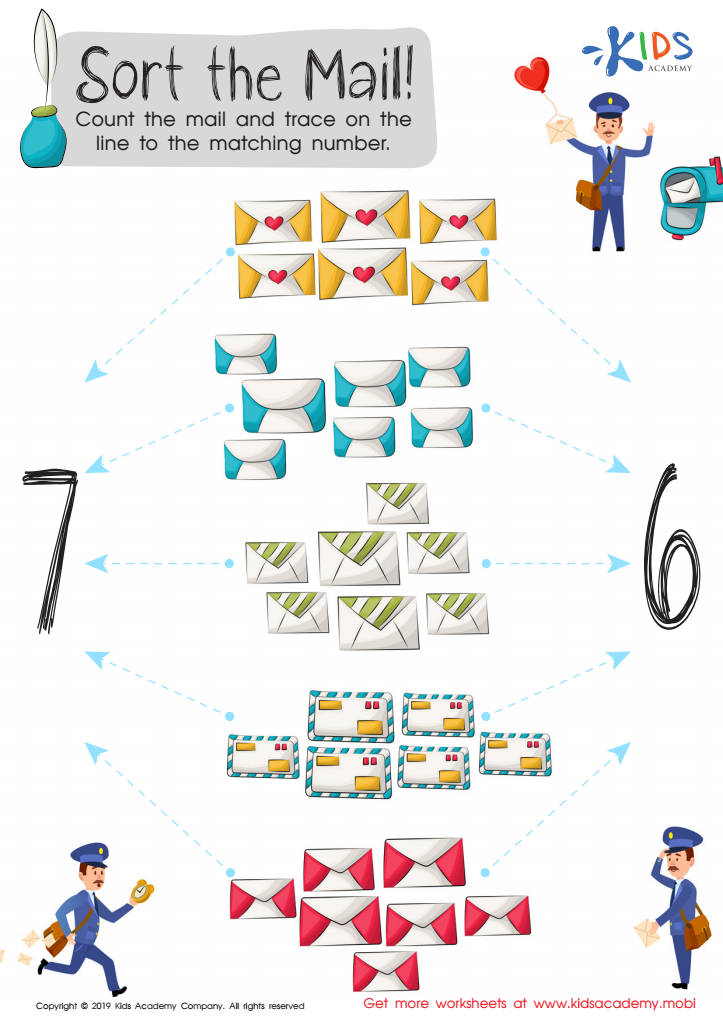

Sort the Mail Worksheet
Sorting skills are foundational for young children, particularly those aged 4-7, as they support cognitive development and pave the way for later mathematical understanding. By learning to sort easy numbers from 0 to 10, children begin to recognize patterns and relationships, which enhances their problem-solving skills.
When parents and teachers focus on sorting, they promote critical thinking. As children categorize numbers, they learn to identify similarities and differences, an essential skill in math and literacy. Sorting also introduces early concepts of classification, enabling kids to develop organizational skills that can benefit them in both academic and personal settings.
Furthermore, sorting engages children in hands-on activities that can be fun and interactive, fostering a love for learning. As children work with physical objects like blocks or toys, they gain a better understanding of numbers in a concrete manner.
Finally, these skills lay the groundwork for more complex mathematical operations. Understanding sorting is linked to concepts like grouping and basic arithmetic, which children will encounter later. Thus, nurturing sorting skills not only helps in immediate learning but also ensures a smooth transition into more advanced mathematical concepts. Parents and teachers play a vital role in this developmental stage, making it essential for them to prioritize sorting activities.
 Assign to My Students
Assign to My Students












